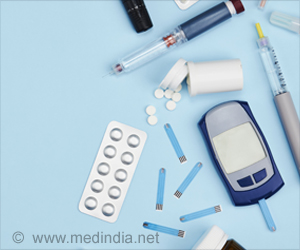A newly made insulin cell can respond to glucose and release insulin following stimulation with two FDA-approved drugs within 48 hours. This can raise the ability of pancreatic stem cells to produce insulin replacing the need for regular insulin injections, and potentially treat millions of diabetics, reveals a study published in Nature (1✔ ✔Trusted Source
EZH2 inhibitors promote beta-like cell regeneration in young and adult type 1 diabetes donors
).
Pancreatic Cell Stimulation As Insulin Alternative: A New Dawn for Diabetics
The team from Baker Heart and Diabetes Institute further confirmed that this pathway of awakening the insulin-producing cells is viable in age groups from 7 to 61, providing much-needed insights into the mechanisms underlying the regeneration of beta cells.
Advertisement
Using pancreatic cells derived from a child and adult type 1 diabetic donors, and from a non-diabetic person, the team led by Professor Sam El-Osta demonstrated how insulin-producing cells that are destroyed in people with type 1 diabetes can be regenerated into glucose sensing and functionally secreting insulin cells. While current pharmaceutical options for diabetes treatment help control blood glucose levels, they do not prevent, stop, or reverse the destruction of insulin-secreting cells.
The novel therapeutic approach holds the potential to become the first disease-modifying treatment for type 1 diabetes by facilitating glucose-responsive insulin production by harnessing the patient’s remaining pancreatic cells, thereby enabling people living with diabetes to potentially achieve independence from round-the-clock insulin injections.
The development of novel pharmacological therapies aimed at restoring pancreas function addresses the stark reality of donor organ shortages. “We consider this regenerative approach an important advance towards clinical development,” Professor El-Osta said.
“Until now, the regenerative process has been incidental, and lacking confirmation, more importantly, the epigenetic mechanisms that govern such regeneration in humans remain poorly understood.”
Advertisement
This research shows that 48 hours of stimulation with FDA-approved EZH2 inhibitors GSK126 and Tazemetostat is sufficient to restore insulin production from damaged pancreatic cells. The next step is to investigate the novel regenerative approach in a preclinical model. The aim is to develop these inhibitors as drugs to restore insulin production in people living with diabetes, the team said.
Reference:
- EZH2 inhibitors promote β-like cell regeneration in young and adult type 1 diabetes donors – (https://www.nature.com/articles/s41392-023-01707-x)
Source-IANS


